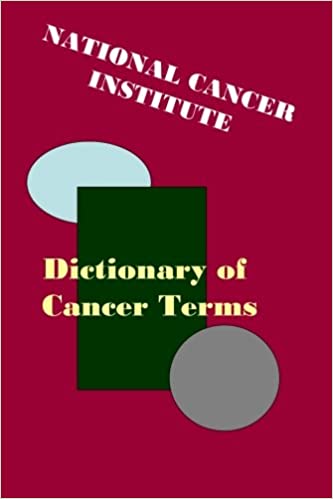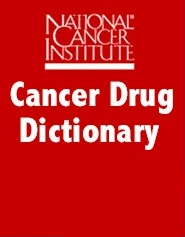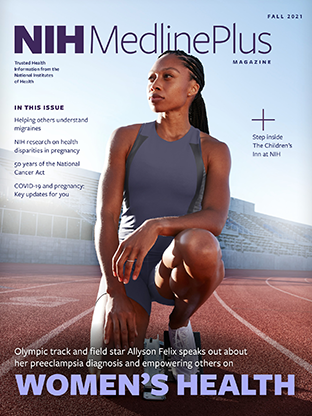- Offer authoritative, current, and relevant online health information resources for patients and their families on various health topics.
- Offer an educational resource to promote health literacy, empower the patient, and lessen health disparities and inequalities.
- Aid in making informed medical decisions that will have a direct effect on the health of a patient.

Layal Hneiny
- Clinical Research Librarian
- layal.hneiny@miami.edu
- (305) 243-8755
- Email: reference@miami.edu
- Phone: 305-243-6648
- Ask a Librarian: http://calder.med.miami.edu/librarianask.html

Ellen Gartenfeld (1938-1984) established the first Consumer Health Information Network (CHIN) at Mount Auburn Hospital in Cambridge, Massachussetts. Although planning for the network began in 1974, before the 1975 Patient's Bill of Rights of the American Hospital Association in 1974; CHIN began functioning in 1977 when Ellen joined the network as its coordinator. Ellen's innovative library program was based on the simple proposition that the informed consumer will benefit by way of better health and medical care. Her publications included articles on CHIN in the October 1, 1978 Library Journal, the July 1981 Bulletin of the Medical Library Association and the 1982 book Developing Consumer Health Information Services, edited by Alan Rees and published by Bowker.
In 1985, the Louis Calder Memorial Library and the Medical School Auxiliary launched the Ellen Gartenfeld Health Information Network (EGHIN) with August LaRocco as network coordinator. Ellen's mother and aunt were members of the Auxiliary and Ellen was a friend and colleague of then Library Director Henry L. Lemkau, Jr. Gus LaRocco published articles on EGHIN in the 1991 book Managing Consumer Health Information Services and the January 1994 Bulletin of the Medical Library Association. Henry Lemkau wrote Ellen's obituary for the Bulletin of the Medical Library Association which appeared in the January 1985 issue.
 NCI Dictionary of Cancer Terms
NCI Dictionary of Cancer TermsNational Cancer Institute (NCI)
 NCI Cancer Drug Dictionary
NCI Cancer Drug DictionaryNational Cancer Institute (NCI)
 NCI Dicitonary of Genetic Terms
NCI Dicitonary of Genetic TermsNational Cancer Institute (NCI)
 NIH MedlinePlus Magazine
NIH MedlinePlus MagazineNational Institutes of Health
National Institutes of Health
- Centers for Disease Control & Prevention (CDC)
CDC works 24/7 to protect America from health, safety and security threats, both foreign and in the U.S. - ClinicalInfoHIV.gov
ClinicalInfo offers access to the latest, federally approved HIV/AIDS medical practice guidelines, an HIV drug database, a glossary of HIV-related terms, and resources related to HIV-related research for health care providers, researchers, people affected by HIV/AIDS, and the general public. - Family Doctor
Trusted medical advice from the American Academy of Family Physicians. - Health.gov
The Office of Disease Prevention and Health Promotion (ODPHP) encourages all Americans to lead healthy and active lives. We accomplish this by establishing and promoting national public health priorities, translating science into policy, guidance, and tools, and working to improve health literacy and equitable access to clear and actionable health information. - Mayo Clinic Diseases and Conditions
Comprehensive guides on hundreds of conditions. - MedlinePlus
MedlinePlus is an online health information resource for patients and their families and friends.
- Med Pix
MedPix® is a free open-access online database of medical images, teaching cases, and clinical topics, integrating images and textual metadata including over 12,000 patient case scenarios, 9,000 topics, and nearly 59,000 images. - Public Health Image Library (PHIL)
PHIL offers an organized, universal electronic gateway to Centers for Disease Control and Prevention (CDC) pictures. - National of Medicine Digital Collections
Digital Collections provides access to the NNLM's distinctive digital content in the areas of biomedicine, health care and the history of medicine freely available for download worldwide and in the public domain unless otherwise indicated. - Wellcome Collection
Wellcome Collection is a free museum and library that aims to challenge how we all think and feel about health.
- All of Us
All of Us is a research program from the National Institutes of Research (NIH) that aims to spped medical research and, thorugh participant information, researchers may learn more about what affects people’s health. - ClinicalTrials.gov
ClinicalTrials.gov is the world’s largest database of privately and publicly funded clinical studies conducted in the U.S. and around the world. - Research Match
ResearchMatch is a nonprofit program funded by the National Institutes of Health (NIH). It helps to connect people interested in research studies with researchers from top medical centers across the U.S.
- ClinicalInfoHIV.gov: Drug Database
Find information on FDA-approved HIV/AIDS and opportunistic infection drugs and investigational HIV/AIDS drugs. - DailyMed
The DailyMed database contains labeling submitted to the Food and Drug Administration (FDA) by companies. - Drug and Lactation Medicine (LactMed)
The LactMed® database contains information on drugs and other chemicals to which breastfeeding mothers may be exposed. It includes information on the levels of such substances in breast milk and infant blood, and the possible adverse effects in the nursing infant. Suggested therapeutic alternatives to those drugs are provided, where appropriate. All data are derived from the scientific literature and fully referenced. A peer review panel reviews the data to assure scientific validity and currency. - Drug Information Portal
The National Library of Medicine (NLM) Drug Information Portal gives users a gateway to selected drug information from the U.S. National Library of Medicine and other key U.S. Government agencies. - LiverTox
Clinical and Research Information on Drug-Induced Liver Injury - Medline Plus Drugs
Learn about your prescription drugs and over-the-counter medicines. Includes side effects, dosage, special precautions, and more. - RxNorm
RxNorm provides normalized names for clinical drugs and links its names to many of the drug vocabularies commonly used in pharmacy management and drug interaction software.
- Agency for Healthcare Research and Quality (AHRQ)
Portal from the Agency for Healthcare Research and Quality provides clinical information, guidelines, research findings and funding opportunities for healthcare professionals. Also offers quality health information for patients and consumers. - Center for Nutrition Policy and Promotion (CNPP)
The Center for Nutrition Policy and Promotion works to improve the health and well-being of Americans by developing and promoting dietary guidance that links scientific research to the nutrition needs of consumers. - Centers for Disease Control & Prevention (CDC)
CDC works 24/7 to protect America from health, safety and security threats, both foreign and in the U.S. - Centers for Medicare and Medicaid Services (CMS)
CMS offers guidance for people with Medicare, Medicare open enrollment, and benefits. - Health Resources and Services Administration
The Health Resources and Services Administration improves access to health care for people who are uninsured, isolated, or medically vulnerable. - National Cancer Institute (NCI)
The National Cancer Institute conducts and supports research, training, health information distribution, and other programs related to the cause, diagnosis, prevention, and treatment of cancer, rehabilitation from cancer, and the continuing care of cancer patients and the families of cancer patients. - National Health Information Center (NHIC)
The NHIC helps connect health professionals and consumers to the organizations that can best answer their questions by providing up-to-date contact information for the most reliable resources. - National Heart, Lung, and Blood Institute (NHLBI)
The NHLBI provides training, and education programs to promote the prevention and treatment of heart, lung, and blood diseases to enhance the health of all individuals. - National Institute of Arthritis, Musculoskeletal and Skin Diseases
The National Institute of Arthritis and Musculoskeletal and Skin Diseases supports research into the causes, treatment, and prevention of arthritis, musculoskeletal, and skin diseases. - National Institute of Deafness and Other Communication Disorders (NIDCD)
The National Institute of Deafness and Other Communication Disorders supports biomedical and behavioral research on hearing, balance, smell, taste, voice, speech and language. - National Institute of Diabetes and Digestive and Kidney Diseases (NIDDK)
The NIDDK supports the research of diabetes, digestive diseases, kidney diseases, and more. - National Institute of Mental Health (NIMH)
The NIMH conducts and supports research that seeks to understand, treat, and prevent mental illness. - National Institute of Neurological Disorders and Stroke (NINDS)
The NINDS investigates the causes, prevention, diagnosis and treatment of neurological diseases such as cerebral palsy, Parkinson's disease, multiple sclerosis, autism, and stroke. - National Institutes of Health (NIH)
The NIH is the primary Federal agency for conducting and supporting medical research. - National Library of Medicine (NLM)
The NLM is a leader in research in biomedical informatics and data science and the world’s largest biomedical library. NLM conducts and supports research in methods for recording, storing, retrieving, preserving, and communicating health information. - Office of Lead Hazard Control and Healthy Homes (OLHCHH)
The OLHCHH provides funds to state and local governments to develop cost-effective ways to reduce lead-based paint hazards. In addition, the office enforces HUD's lead-based paint regulations, provides public outreach and technical assistance, and conducts technical studies to help protect children and their families from health and safety hazards in the home. - Office of Minority Health (OMH)
The office of OMH improves the health of racial and ethnic minority populations through the development of health policies and programs. - Substance Abuse and Mental Health Services Administration (SAMHSA)
Primary source of national data on the prevalence, treatment, and consequences of substance abuse. - U.S. Department of Health and Human Services (HHS)
The OLHCHH provides funds to state and local governments to develop cost-effective ways to reduce lead-based paint hazards. In addition, the office enforces HUD's lead-based paint regulations, provides public outreach and technical assistance, and conducts technical studies to help protect children and their families from health and safety hazards in the home. - Veterans Health Administration (VHA)
The VHA provides primary care, specialized care, and related medical and social support services to American veterans.
